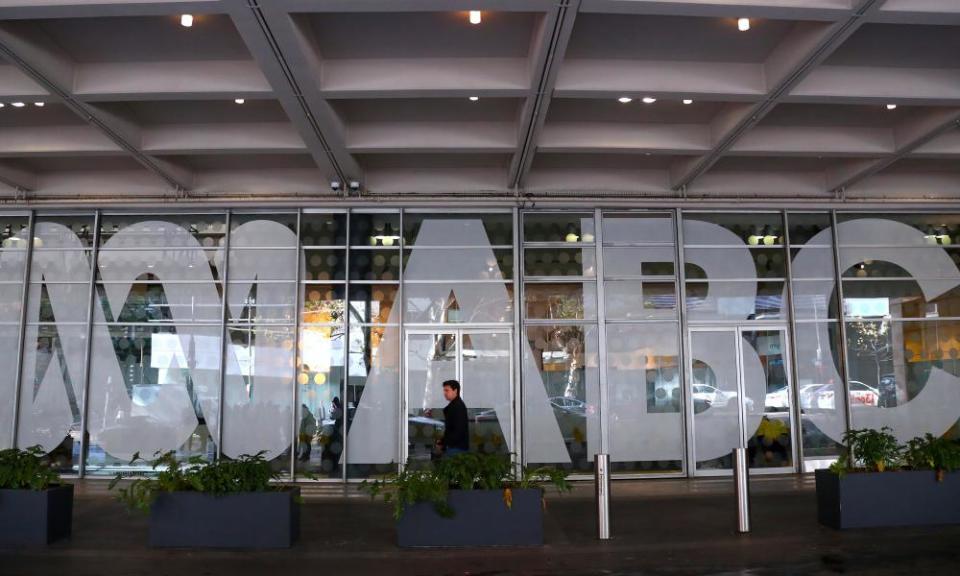ABC says it cannot fill void created by closure of suburban and regional newspapers

The ABC cannot fill the void created by the closure of hundreds of newsrooms in suburban and regional Australia, the broadcaster has told a Senate inquiry into media diversity.
The news deserts created by the collapse of advertising revenue for newspapers may mean the ABC is now the only news outlet covering a regional or rural town, the ABC submission says.
While the ABC provides the foundation for public interest journalism it does not have the resources to tell all the nation’s stories.
“The ABC was not established to deliver hyperlocal news across Australia,” the submission says. “This was the province of the once profitable local newspaper sector. The ABC was aimed more at delivering national news to communities and helping local voices to be heard in their regions and in national debates.”
Related: ABC drops reference to Invasion Day after minister criticises 'incorrect' use
Last year News Corp Australia cut costs by closing the print editions of more than 100 local and regional newspapers and the Covid-19 pandemic brought a fresh wave of job losses across magazines, television and newspapers, leaving some communities without a newspaper.
The digital platforms inquiry heard 106 local and regional newspaper titles closed across Australia between 2008 and 2018 as Facebook and Google attracted the lion’s share of advertising dollars.
The media diversity inquiry was established by Greens senator Sarah Hanson-Young following the popularity of Kevin Rudd’s petition for a royal commission into Murdoch media.
The former Labor prime minister’s petition for a royal commission into the need for a strong, diverse media was supported by 501,876 people.
The ABC has told the inquiry the closure of hundreds of newsrooms has forced ABC news to work harder to produce local coverage for communities, including placing reporters in outer suburban centres and remote areas.
However, the ABC is struggling to expand its resources into new areas after repeated budget cuts by the Coalition.
Australia is one of the most concentrated news markets in the world, with News Corp accounting for 52% of the market by readership, and the biggest four players – Nine Entertainment, Seven West Media, Australian Community Media and News – making up 92%.
There have been digital-only entrants to the market in recent years, such as Guardian Australia and the New Daily, but it has not been significant enough to make up for the loss of public interest journalism once produced by well-resourced metropolitan and national newspapers.
In 2018 the major newspapers published 28% fewer articles on local government, 40% fewer articles on local court cases and 30% fewer articles on health than in 2005.
Free TV, which represents the commercial free-to-air broadcasters, has told the inquiry the threat to public interest journalism comes from national security laws and unworkable freedom of information and defamation laws that “undermine and impede traditional media’s ability to report on matters of public interest”.
The ACCC has told the inquiry for every $100 spent by advertisers on online advertising in 2019, $53 went to Google, $28 to Facebook and $19 to all other websites and ad tech providers. This is an increase to both Google and Facebook from $49 and $24 respectively in 2018.
“The impact of Covid has since further exacerbated this decline in rural and regional journalism,’” the ACCC said.
The Public Interest Journalism Institute’s newspaper mapping project reports that from January 2020 to 20 November 2020, there have been a further 33 permanent closures of mastheads, stations and newsrooms across Australia, and 97 Australian newspapers have permanently ended their print editions.
Related: 'Lived experience': finally, a disability reporter who has a disability
Facebook has attempted to use the diversity inquiry to distract attention away from the other parliamentary inquiry about the impact of the tech giants on local media by urging the Senate to investigate media concentration rather than big tech.
Facebook and Google are in a battle with the Morrison government concerning draft legislation that would force the tech giants to pay Australian news publishers for content. Both Google and Facebook have threatened to withdraw services from Australia but the government says it is inevitable they will have to pay media companies.
The ABC called on the government to help the commercial media sector as well as maintain funding for the ABC “to ensure there is always an independent and free source of information” available especially in times of crisis”.

 Yahoo Finance
Yahoo Finance 